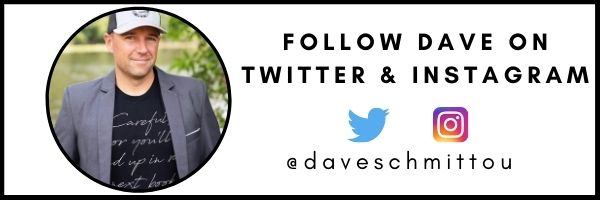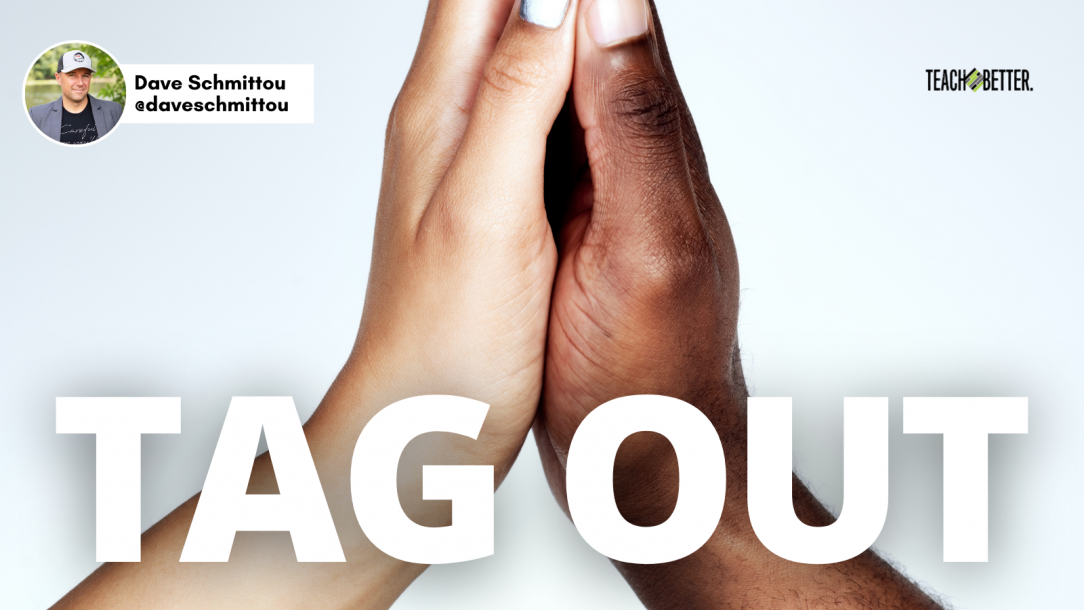TL;DR:
- Instead of doing a walkthrough, administrators can do a tag out. This allows the teacher a chance to do a walkthrough in a room of one of their peers.
- With tag outs, educators get the time to learn from their peers. This provides them an opportunity to learn more than they might if they were being observed by an administrator.
Tag Out
I’m in my twenty-first year as a professional educator. I spent almost a decade as a classroom teacher and another decade as an administrator. Now I am lucky enough to spend my days working with future leaders as a professor at a mid-western university and a coach/consultant with the Teach Better Team. I love what I do today, but I often find myself reflecting on my days spent in a school building surrounded by curious kids and amazing teachers.
A few weeks ago, when reflecting on days gone by and some of the incredible things I was able to experience and observe, I was brought back to a practice I implemented in my last few years as a building principal and decided to tweet about it.
I actually believe teachers can learn way more from each other than from me. I believe teachers have more to give to each other than any administrator does. Click To TweetAdmin- This month, instead of doing walkthroughs, do tag outs. Go to a teacher’s classroom, take over, & send them to walkthrough the rooms of their peers. They will learn more from them than you. You will learn more from teaching than preaching.

I have been on Twitter for ten years and have never had one of my posts make such a big impact. Apparently, the Instagram crowd found power in these words as well.

In total, after just shy of two weeks, this simple post, reflecting on a practice I assumed was common, has been shared and commented on more than 20,000 times.
And I’ve got to be honest, I am kind of shocked by it. I didn’t think this post revealed anything novel and exciting. But I guess for some, this has been exactly what so many have been looking for.
Looking at the thread of comments on the various social media channels in which this has been shared, so many people see this as an enticing concept.
In our classrooms, we preach about the power of collaboration and engagement.
In our schools, we amplify the need for Professional Learning Communities. And in society, we preach the need for dialogue, debate, and civil discourse. Learning from each other, talking about our individual strengths, and developing our collective greatness is an essential function of society. We speak of the need to break out of our sage-on-the-stage mindsets and instead lean into each other.
As a former building principal, I can admit that I struggled early on in my career. I often thought my job was to develop “Itty Bitty Schmitty’s” (a tribute to my last name) than to develop a staff capable of doing more than I ever did. I was a good teacher and, as a result, often thought my task was to help teachers do things the way I did, because, after all, it worked for me. If I am being completely honest, however, it wasn’t until I decided to get out of the way that success truly followed.
As a parent, I struggled with this early on as well. My oldest child didn’t learn to tie his shoes until he was eight years old because I felt it was my responsibility to step in and help him every time his laces unraveled. I now have four children and am increasingly amazed at what each successive child has been able to accomplish when I simply get out of the way and let them learn from their siblings around them.
In the last few weeks, my tweet has also received its fair share of haters.
There have been comments accusing me of arrogance and narcissism for believing an administrator can just step in and teach a class. There have been others who have stated that I have demeaned the role of a teacher by making it seem as though they are easily replaced. For anyone who felt that as a result of my 280 characters, I apologize.
The fact is, I believe the exact opposite.
I actually believe teachers can learn way more from each other than from me. I believe teachers have more to give to each other than any administrator does. And I believe that leaders can benefit from spending more time supporting students and sharing space with them than they can holding a clipboard and filling in evaluative rubrics.
I also believe humility is necessary for success in all positions, from superintendent to teacher. We all must believe that our greatest strength is admitting our weaknesses and then demonstrating a willingness to grow.
I believe…
The best leaders work to get others to weigh in so they do not have to work so hard to secure buy-in.
The best leaders should work to be more KNOWable than KNOWLEDGEable.
Empowerment truly means equipping others with the power you rightly deserve.
Knowing the difference between each and every is the difference.
When we tap into strengths instead of focusing on deficits, we see magic happen.
We could all benefit from tagging out from time to time.
Your willingness to read this entire blog is a testament to your commitment to grow.
You are exactly what someone else needs. Be bold, be humble, be you.
Make Tag Outs a Reality in Your Workplace
I am happy to help anyone who wants support in making tag outs become a reality in your workplace. The best place to learn more is the Leading By Empowering course in the Teach Better Academy.
[scroll down to keep reading]About Dave Schmittou
Entering his twenty-first year in education, Dave has earned a reputation for being a disruptor of the status quo, an innovator, and a change agent. Having served as a classroom teacher, school-based administrator, central office director, and now professor of Educational Leadership, he often uses real-life stories and examples of his own life and career to describe why and how we need to confront “the way we have always done it.”
He has written multiple books, including “It’s Like Riding a Bike: How to make learning last a lifetime”, “Bold Humility”, and “Making Assessment Work for Educators Who Hate Data but Love Kids”. He speaks, consults, and partners with districts around the country and loves to keep learning and growing.




